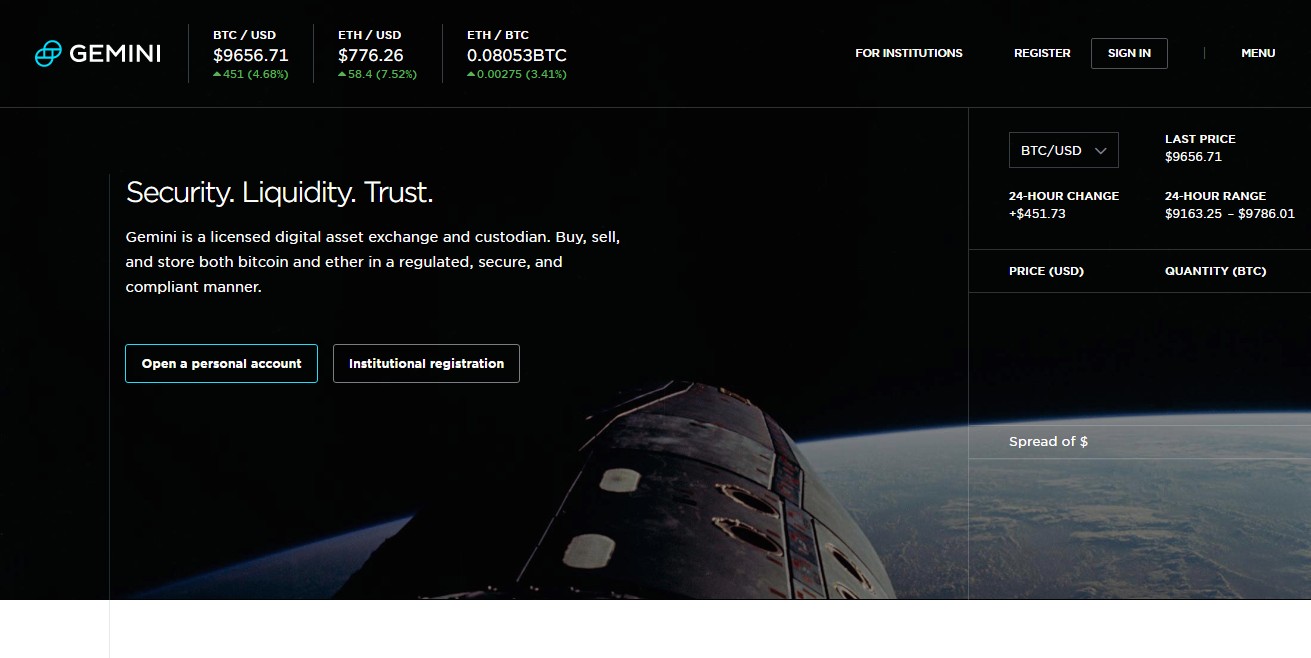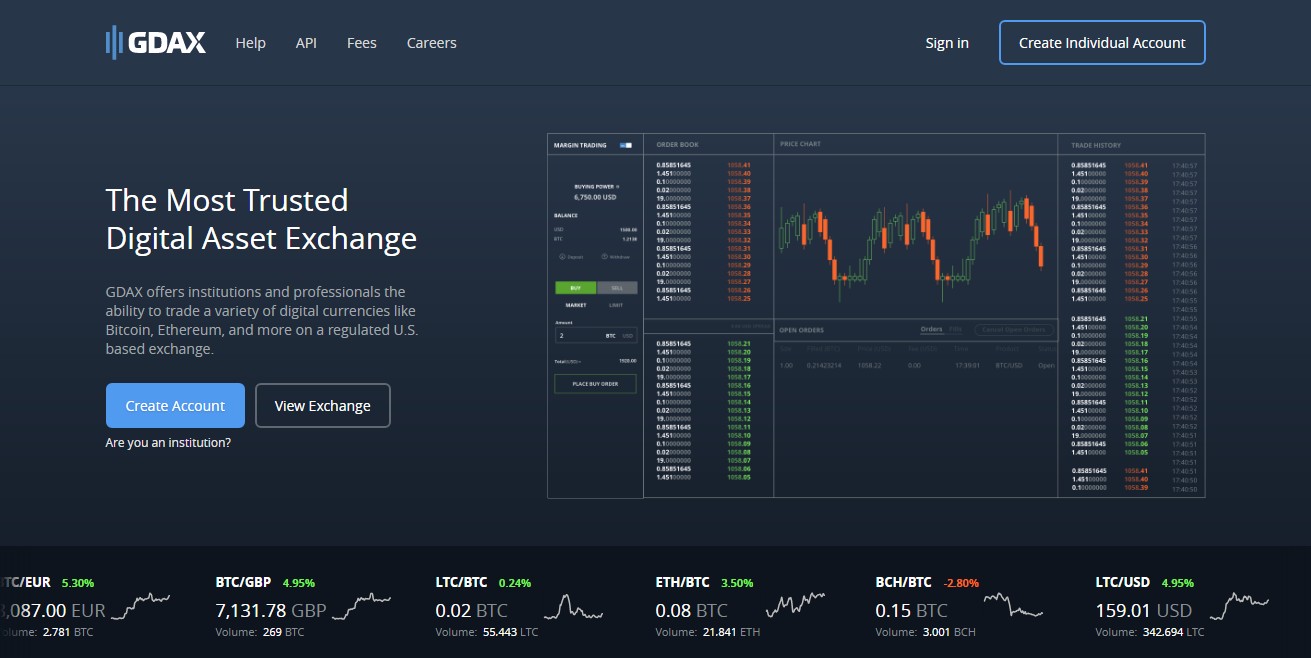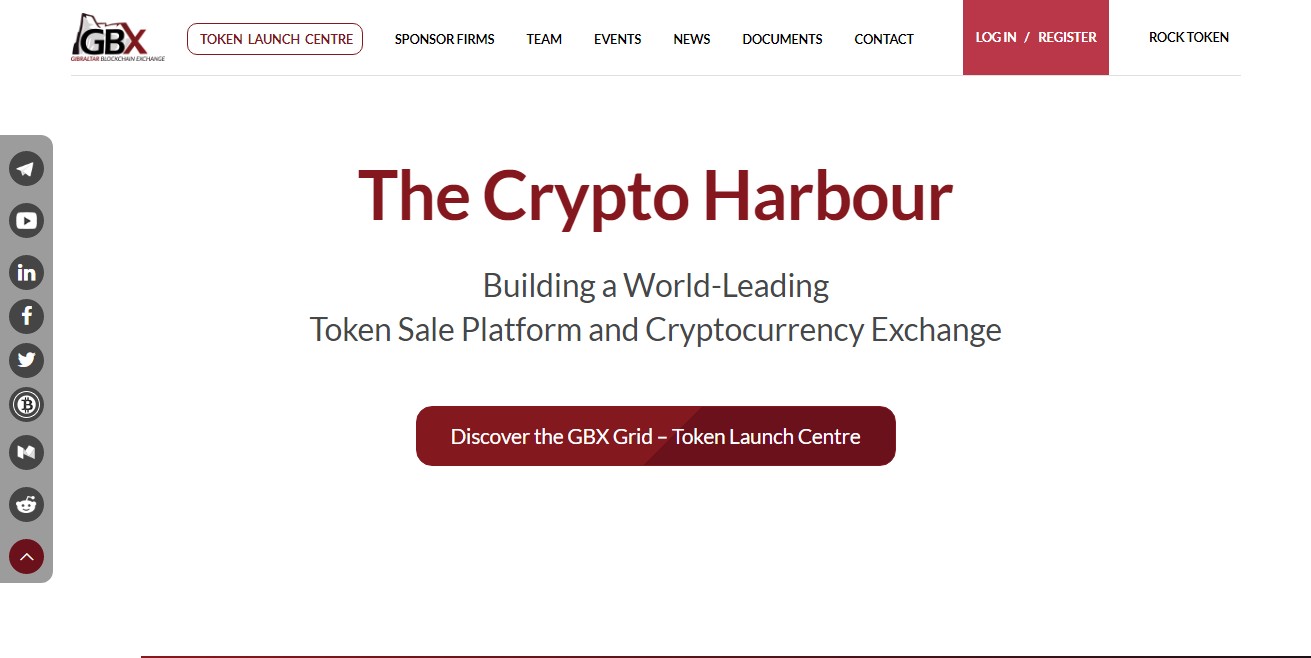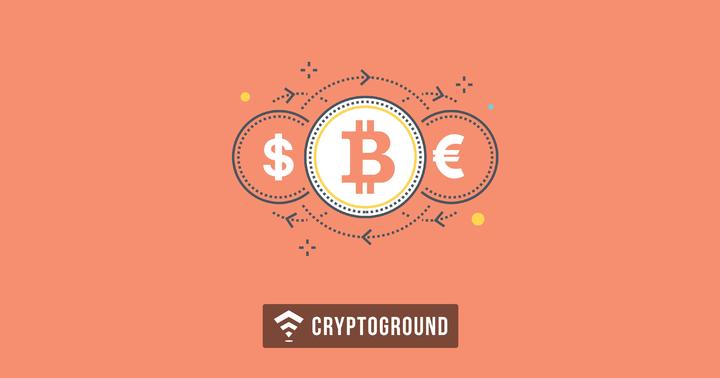Interest in cryptocurrency and blockchain technology has grown manifolds in 2018. Venture capitalist investment in blockchain startups is going to exceed those of 2017 and had reached more than 40% of last year. Naturally, the volumes and trading at institutional levels are going to increase. To garner this business, it is essential that exchanges keep the following points in order –
-
Security – A number of recent incidents of hacking have brought this aspect into the limelight
-
Liquidity – Large volumes and small volumes of altcoins should be transferable
-
Development Team – Keep the exchange updated with various new coins, updating security protocol
-
Fee Rebates – to fight competition as until now many exchanges had free services. They will now have to levy a charge and the “brokerage” will remain the focal point.
Hence, here is a comparative study of these 3 known and large exchanges, based on these aspects as well as understanding the pros and cons.
Gemini Exchange

Website: gemini.com
Pros
The exchange has the distinct advantage of being the first U.S government licensed crypto-exchange. The exchange adheres to U.S banking compliance laws under NYSDFS (New York State Department of Financial Services) and New York Banking Law.
It has an experienced team of 55 members under the ownership of Winklevoss Brothers with minimum 3 years’ experience in their respective fields.
The exchange has made good use of its connections and has been endorsed by several institutional players like crypto hedge fund BlockTower and Chicago Board Options Exchange for its daily settlement services of Bitcoin Futures. The exchange has different types of wallets such as high deposit limits and advanced crypto-wallets.
The exchange stores the USD funds in a secure FDIC-approved bank which means the accounts are insured up to $250,000 in case of a loss.
Gemini accounts for each customer and not in a pool, thus giving protection against exchange bankruptcy. Facility of instant bank transfers, immediate funds for trading on transfer are some of the unique advantages.
Cons
The exchange ensures only USD accounts under the FDIC rules. Thus only keeping your money in USD with the exchange would be safe.
Bank deposits only up to the limit of $10,000 are allowed in a day for institutional investors which will limit the trading volumes looking to invest high amounts.
Also, perhaps the biggest drawback is a limitation of only BTC and ETH being offered on the platform.
Also, even after following so many laws, it does not have a third-party auditing done as yet. Such a step would enhance the credibility of the exchange.
Global Digital Asset Exchange (GDAX)

Website: www.gdax.com
Pros
GDAX, launched in 2016 is fully owned by Coinbase Inc. and has one of the highest volumes in the world.
The wide experience of Coinbase which cover $9 billion worth of digital assets worldwide has given a good start to GDAX as well. The company has undergone partnership with Trading Technologies (TT) which is a world leader in trading software. Also, TT customers can utilize the GDAX platform for cryptocurrencies and bitcoin futures.
GDAX also offers the FDIC insured facility for USD fiat money of its customers in U.S banks. It keeps the GBP and Euro in separate accounts protected by exchange bankruptcy.
The fees per trade are 0.25 % for enticing institutional investors.
Cons
The company has gained a reputation for slow deposits, unresponsive customer service and long withdrawal periods for funds. The exchange is a centralized training platform which is a security threat and a concern for most institutional investors. Also, only 2% of the investors’ funds are held in the exchange with the rest in cold wallets which leaves 98% of the assets uninsured.
Again there is no external auditing that takes place and there is a limitation on the coins offered – Bitcoin, Bitcoin Cash, Ethereum, and Litecoin.
Gibraltar Blockchain Exchange (GBX)

Website: gbx.gi
Pros
The company is registered in Queensway, Gibraltar is a subsidiary of the Gibraltar Stock Exchange giving it the credibility as an exchange. To this effect, it has worked toward fulfilling compliances for institutional investors. It aims to become the go-to exchange for high-risk and aggressive institutional traders. To comply with the exchange rules, the traders have to undergo AML/KYC checks. The exchange also provides multi-signature wallets to customers.
The exchange also offers its own currency known as the Rock Token (RT) and is used by the traders to lower their trading fees in exchange for it.
Investors can also look forward to the launch of the GSX Tokenized Securities Exchange in 2018 which will be an independent subsidiary to list various security token security companies are those which are backed by a real-world assert.
Cons
Just Like The Other exchanges GBX also stores a portion of Bitcoin Holdings on the exchange with the rest in the cold wallet it has no third party security Audit and there is a lack of transparency to institutional investors.
GBX is not yet catering to some major markets such as USA, South Korea, and Japan. Also, a large portion of the tokens of about 65% is held by the GBX team making it less inclusive for institutional investors.
The company is also walking a thin line between compliance and misleading the public as it does not have a traditional finance regulatory certificate but only a distributed ledger regulation, which is anyways mandatory for all blockchain businesses.
Thus, understanding the details of exchanges is important before investing your money and use of hard wallets is a necessity.
























